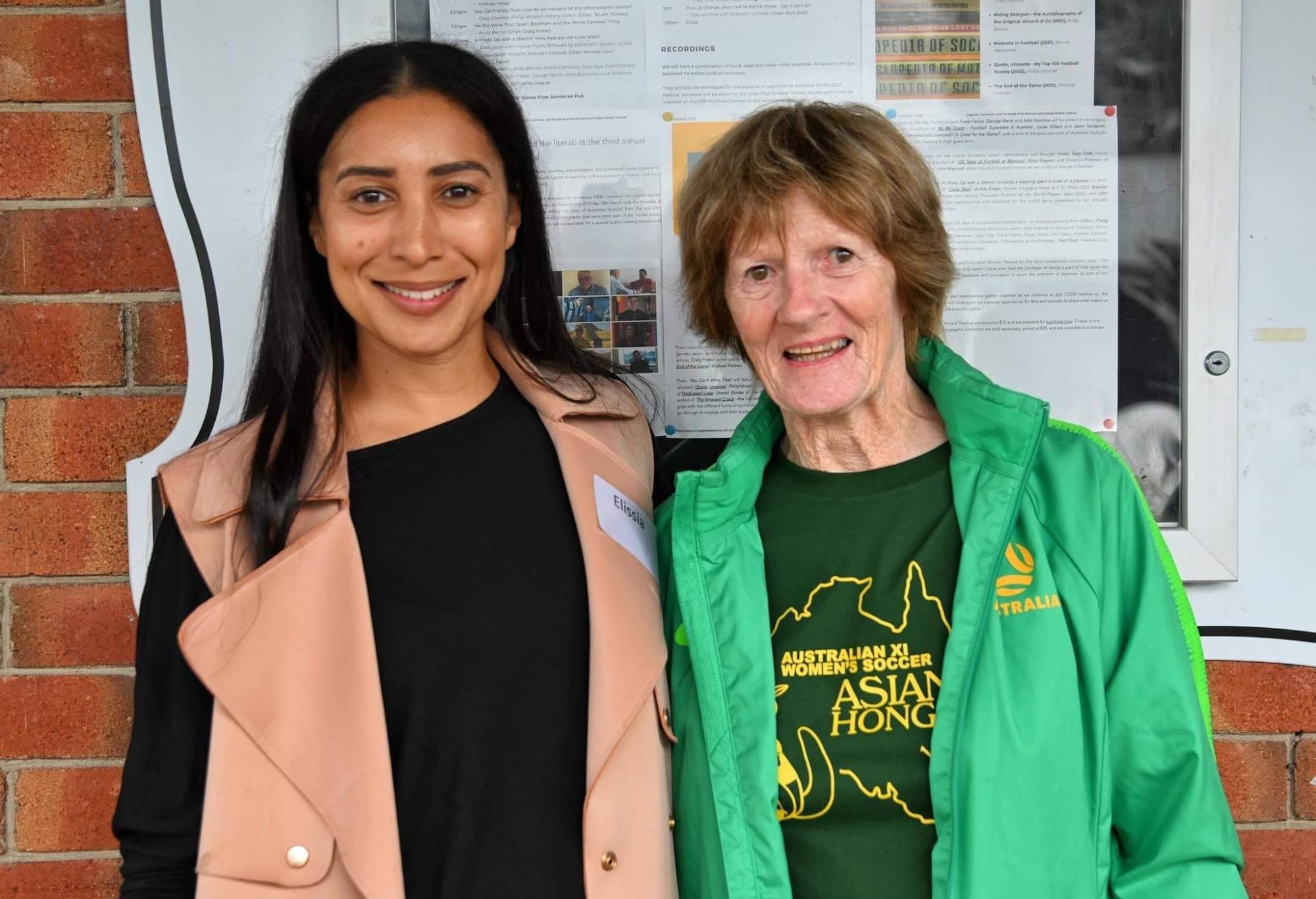
Elissia Carnavas (nee Canham) has a special place in Australian football, being the first known woman of African heritage to represent an ‘official’ Australian national football team.
Carnavas, whose family hails from South Africa, achieved this unique feat when she represented the Young Matildas as a 16-year-old in their inaugural match in 2001 against Singapore, netting a goal to mark the occasion.
Ironically, Carnavas was not even aware of her unique place in history.
“I had no idea but amazing and super proud of that stat,” said the 36-year-old, who also played for the Queensland Sting in the WNSL and Perth Glory in the W-League.
“I just remember Thea Slatyer and I were subbed on together in that game against Singapore in Gosford.
“My first goal was against Singapore I’m pretty sure. I was 16-years-old.”
Incidentally, the first men to represent Australia from the African continent were two South African-born Socceroos from the 1920s in Jack White and Charlie O’Connor.
While it is next to impossible to pinpoint the exact heritage of all players that have represented our national teams over the years, it is quite possible there were a number of others with African ancestry.
These days, the number of Australian national team players of African heritage in men’s is quite strong, but there is still a lack of women. Princess Ibini (Nigeria) and Casey Dumont (South Africa) are a rare exception.
This is something Carnavas is aware of and wants to help change.
She believes tournaments like the inaugural NSW Women’s ANSA African Cup, held at the headquarters of the Western Sydney Wanderers last year, and the RAA African Women’s Nations Cup held in Adelaide will go a long way to attracting more African talent to women’s football.
“Those type of tournaments are fantastic, it’s so good to see them as it creates all kinds of opportunities,” Carnavas said. “We need to see more of this in Australian football.
“It would be great to see more A-League Women players and national team players of African heritage.
“You would get a lot of support from the African community if this happened. I know my family and I would certainly support these players as we know how difficult some of these players and their families would have had on their journey. Their success, is our communities success too.”

Two pioneering women in Australian football – Elissia Carnavas and former Matildas coach Trixie Tagg at the Football Writers Festival in Jamberoo this month.
Carnavas is passionate about inclusion and diversity throughout the game and is aware of some of footballs omissions even in recent history, particularly in the women’s game. The ongoing discussion around the 1975 Matildas’ team (Australian XI) and their lack of recognition is something that has captured her attention.
“The 1975 Australian Women’s team deserve to be recognised and deserve the highest honour among the pioneers of our game,” she said. “To wear the Green & Gold is an honour and the pride those women felt in wearing that jersey shouldn’t be diminished.
“I think when we start to grade levels of international matches and grade recognition accordingly, we are heading into dangerous territory. A cap is a cap.
“Whether you played one or 100. Any player that wore the Green & Gold deserves to be recognised for their achievement and contribution, and we as a sport shouldn’t allow anyone to attempt to devalue those experiences of former and future players.
“Recognising our past, both its successes and failures, and being inclusive and transparent as we head into 2023 is incredibly important for the stability of any progress in the women’s game.
“Now is the opportunity to be all inclusive and celebrate all contributions to the national teams, W-League teams and WNSL teams.
“These players have all played their part in the story and should be woven into the women’s football tapestry with ease.”
Carnavas takes a lot pride in the fact the Young Matildas started their story off with a bang, thrashing Singapore 10-0 in that first ever game on 5 August 2001. They followed this up with a 2-0 win over Vietnam four days later.
The Young Matildas and Carnavas continued their form at the U-20 Oceania Women’s World Cup qualifiers in Tonga in 2002, thrashing the hosts 11-0, Cook Islands 15-0, Samoa 13-0 and New Zealand 6-0 to qualify for the inaugural FIFA U-20 Women’s World Cup in Canada later that year.
Carnavas played in that World Cup, where the Young Matildas made the knockout stages, only to go down to old foes Brazil 4-3 in heartbreaking fashion.
She firmly believes that era of women’s football in Australia produced some of the best players this country has seen.
“I feel very honoured to be a part of a formative period in women’s football. It was an exciting time in the games history,” she said.
“Of course, it wasn’t without its challenges but it was through the formation of the Young Matildas that the women’s game was really able to grow and progress a little more.
“That team of Young Matildas could have arguably all gone on to play in the senior Matilda’s team very easily – the skills, technical ability, passion and ambition was immense.
“Those young players competed in WNSL from a young age, playing far beyond their years which resulted in a football maturity at an early age.
“People will argue that the current crop are the ‘golden generation’ – and to their credit, they’re amazing for the game.
“But I firmly believe that era of the first Young Matildas + the Matildas of that time were the best Australian football has produced in the women’s game.
“Today’s crop of players stand on the shoulders of many, many amazing players who have played and given the women’s game its formation and foundations and it should never be discarded.”